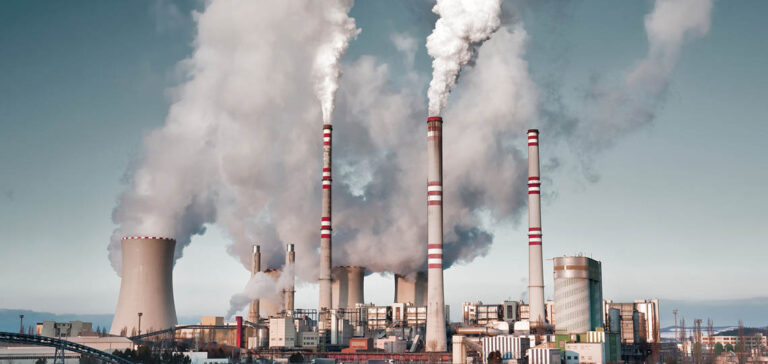Global CO2 emissions are up by around 1%, mainly due to the combustion of fossil fuels. This is a new record for 2023, scientists announced in a preliminary study on Tuesday.
If mankind is to meet its target of cutting carbon pollution emissions by almost half this decade, and thus limit the disastrous effects on the climate, global emissions should have fallen by around 5% this year, Glen Peters, research director at the CICERO climate research institute in Norway, told AFP. Instead, they continue to rise: in 2023 alone, they are expected to increase by between 0.5% and 1.5%, according to Peters’ research.
The Emission Reduction Targets Challenge
“It’s highly unlikely that emissions will decrease,” says the scientist. These figures, which are still preliminary, show just how difficult it will be to reduce emissions fast enough to meet theParis Agreement ‘s most ambitious target of limiting global warming to 1.5°C above pre-industrial levels. Warming beyond this threshold risks triggering dangerous tipping points in the climate system, scientists warn.
Financial and energy impact
“Every year, emissions continue to rise, making it all the more difficult to achieve Paris-compliant trajectories,” Peters points out.
Full figures from the study will be published in December, when world leaders gather in the United Arab Emirates for the crucial UNO climate talks, which are expected to be dominated by international wrangling over the future of fossil fuels, the main sources of CO2 emissions.
Energy Transition and Economic Challenges
Earlier this year, the International Energy Agency (IEA) stated that, for the first time, global demand for oil, gas and coal is set to peak this decade due to the “spectacular” growth of cleaner energy technologies and electric cars. But she also warned of the negative impact of increased investment in fossil fuels and “stubbornly high emissions” during the post-Covid economic rebound and the energy crisis caused by Russia’s invasion of Ukraine.
The Challenges of Energy Transition
The scientific community had hoped in 2015 that emissions might then peak, recalls Peters. Peters, then again, during the pandemic, it was hoped that 2019 would mark a maximum. “Yet here we are again, with a new peak in 2022, and another peak expected again in 2023.”
What concerns me is that we’re doing half the work, developing clean energy, and not doing the other half, moving away from fossil fuels,” he explains.
Acting for a sustainable future
The current CO2 emissions situation presents an urgent financial and climate challenge. The transition to cleaner energies is not only essential to safeguarding our planet, but also to guaranteeing long-term financial stability. Investment in renewable energies and clean technologies is now essential, while continued dependence on fossil fuels could have serious economic consequences. World leaders have a crucial role to play in reversing this alarming trend. The future of our planet and our economy depend on it.






















